- Home
- Paul Finch
Medi-Evil 3 Page 17
Medi-Evil 3 Read online
Page 17
“Is this robbery still in progress?” Silverwell asked, sounding amazed.
Bytes refused to answer.
“Christ’s sake, man, what’s happening here?” Kilgariff barked at him.
“Gun commander, put this man under arrest and keep him here,” Silverwell said, moving to the entrance.
This surprised Bytes a little. A certain breed of officer – and Richard Silverwell was one – were rarely willing to put themselves in the front line. But of course the alternative would be holding Bytes by himself, and a man facing charges of desertion, looting and maybe mutiny could be capable of desperate actions. Silverwell was taking what he considered the safer option. Sword drawn, he advanced cautiously into the darkness.
“Double up, man!” Kilgariff bellowed. “Stand to attention!”
Bytes went rigid as a post, but now kept his right hand behind his back. Slowly, he thumbed open the lock-knife concealed there.
“Double up, I said! You slovenly bloody ox!”
“There’s a fortune in those pots, sergeant …”
“No talking on parade!”
“You poor bloody fool.”
The muscles in Kilgariff’s bull-neck visibly tightened. He took a step forward and leaned into Bytes’s personal space until they were nose to nose – which of course was exactly what Bytes wanted.
The first knife-blow caught Kilgariff in the abdomen, the second in the solar plexus – this one ripped upwards several inches. The third was in the ribs, the fourth across the throat as Kilgariff sank to his knees, severing both his windpipe and his jugular vein. As Kilgariff lay in the grass, his life pulsing out in ruby fountains, Bytes hunkered down and peered straight into his ashen face.
“Believe it or not, sergeant,” he said, “I’ve just done you a favour. You can’t imagine the fate awaiting Lieutenant Silverwell.”
*
A native of Henworth village in the Forest of Arden, Tom Caxton had been forced to leave home with his mother and his sister when he was five years old.
His father, a land-labourer in the service of Lord Rayne, had died from influenza that year, and the rest of the family were subsequently turned off His Lordship’s land because they were no longer deemed useful. Tom’s mother took them to Coventry, where she and his sister found employment in a blacking factory. It was around this time that, Tom, who was too weak and ill to perform manual labour, was sent to the charity school run by the Macphersons, a missionary couple from Edinburgh. There were no fees required, but he only remained in their care for three more years at which point his mother died from an infected cut. By this time Tom’s sister had taken up with a fellow worker, a drunken sot who brutalised her at every turn, and occasionally brutalised Tom as well. Tom’s sister had also taken to drink, but still retained a modicum of decency, and, on her mother’s death, she gave Tom a knapsack filled with food, and three shillings that she’d been saving up, so that he could find his way in the world. It was a bitter winter, and Tom only found his way as far as the workhouse, where he was treated for frostbite and exposure, the cost of which he had to meet himself with his three shillings. After that he was dispatched to work on a treadmill, but this was worse slavery than even his father had found on the muddy furrows of Lord Rayne’s estate, and, after one thrashing too many, he fled the parish. Destitute, he wandered as far as Birmingham, where, in a hellish fog of fumes from the furnaces and soot from the factories, he came upon a recruitment officer for the Royal Artillery, who was touring the working districts in an attempt to replenish his regiment’s ranks, which had been thinned by the wars against Napoleon. Dazed with hunger, Tom signed up there and then – writing his own name rather than a simple X, which impressed the officer no end. That night – for the first time in he didn’t know how long – Tom slept under clean sheets, on a proper mattress. He even had warm food in his belly and clean water to drink. It was the closes thing to luxury he could remember. No matter that the next morning he awoke in a draughty barrack tent, to the sound of a bugle, horses neighing and brutal shouting …
His eyes snapped open again, and for a short while he was too agonised and confused to understand where he was or what had happened. Slowly the dank underground passage swam into view, the earthen smell of the underground filled his quivering nostrils – and it all came back.
To be clouted unconscious was not a new experience for Tom, but he was still a little groggy and the other events were enough to set his mind teetering. Only with great difficulty did he get back to his feet.
The bronze monstrosity had been on the verge of descending into the derelict bath, when it had heard his colleagues calling. This had drawn it away. Only when Tom had heard the shouts and screams as it engaged them, had he felt safe enough to climb up the steps. He hadn’t had sufficient pluck to join the fray. Instead, he’d tried to escape, scrambling through doorway after doorway, tearing through veils of webbing, blundering into furniture that simply disintegrated on contact. By pure accident, he’d come upon another figure cowering in the dark. Only the mingled stenches of human sweat and burned powder had convinced him that it was one of his own. He’d crept forward to find that it was Joshua Bytes, and – nothing else after that made sense.
His head spinning, blood dripping from the end of his broken nose, Tom stumbled back towards the light, rounding a corner into what he assumed was the main passage – and again he almost collided with someone.
“God’s blood!” came a whip-crack shout. A steel sword-tip appeared at Tom’s throat.
“Lieutenant Silverwell, I … please sir …”
“Young Caxton, is it?”
Tom could still hear a terrifying racket from close by – things were being broken, in fact shattered, as if demolition charges were going off.
“Sir, there’s a … devil in bronze,” he stuttered.
“What are you talking about, boy?”
“It’s all a terrible accident, but this thing …”
“There’s devilry afoot here, for sure! What have you swine been up to?”
“This awful thing …”
“You could swing for this, Caxton!”
Then there was a rasping breath and a wild stumble of footsteps. Tom screamed and backed away. Silverwell whirled around – just in time for a staggering form to flop out of the darkness and land upon him. It was Gunner Alker, but in a shape that would have been more at home on the corpse-strewn field at Waterloo. His upper body was drenched with blood, his face battered to ruin, the left cheek-bone and eye socket so badly broken that the eyeball hung onto his cheek by threads of tissue. From his anguished gasps, there was still life in him, but he now sank to his knees, tongue dangling from a mouth that hung unnaturally wide thanks to a shattered lower jaw. Alker tried to form words, but failed. He slipped down and lay still on the floor.
“God’s blood,” Silverwell said again. “God’s blasted blood!” He moved forward, sword brandished.
“Sir!” Tom pleaded.
“Get to me, lad! Damn your eyes!”
Tom followed, but at a distance of several yards. They reached the T-junction and turned right. Tom had already guessed that the noise emanated from the statue room. And when they reached the entrance to it there was just enough light to reveal what was happening in there. Dominic Grubber, his cheeks glistening with tears, leapt from one sculpted figure to another, using them as shields, while his bronze tormentor stalked him around the room, assailing each one with its weighted sceptre, smashing them apart.
“Gunner Grubber!” Silverwell bawled, not yet comprehending what was happening. “Stand your ground like the soldier you’re supposed to be!”
With more clicking and whirring, the bronze man turned around. Tom again set eyes on that blank expression, now scarred where its opponents had struck at it. Silverwell gave a grunt of shock as it lurched towards him. He even lowered his sword a little, but Tom had already seen enough and fled back into the central passage. He hared down towards the entrance, but, before he reac
hed it, the daylight was again blotted out – this time as another figure came in, its back apparently turned. Tom wasn’t initially sure who he was seeing; and then he realised. It was Bytes again, and he was dragging something.
Bytes didn’t notice Tom until they’d almost knocked into each other, at which point Tom spotted the body of Sergeant Kilgariff, long crimson smears on the paving stones behind him. Bytes swung around, dropping the corpse and snapping a blade open. Tom grabbed the arm holding the knife, but was slammed backwards against the wall. Suddenly Bytes’s elbow was pressed into the boy’s larynx, crushing it. Tom gagged, felt his eyes expand in their sockets. He kicked and punched desperately. Their faces were now less than an inch apart, Tom’s bruised, bloody and white with fear, Bytes’s red as raw beef, trickling with sweat, his lips folded back on feral teeth through which foul breath hissed.
Pinning Tom in place, Bytes drew back his knife, looking to plunge it under the boy’s ribs – but he never saw the big knuckled fist that dealt him a ferocious blow on the right cheek. The smack was deafening; then Bytes was falling sideways. He landed on top of Sergeant Kilgariff’s body and lay motionless.
Ned Flint had thrown the punch, but the exertion had taken so much out of him that he had to lean on the wall. Clotted blood streaked his face and his dirty blonde hair.
“Tom … lad,” he said. “Tom … what in Christ’s name is going on here?”
“I don’t …” Tom stammered. “I think there’s … it sounds mad, but … some kind of guardian …”
“Guardian?”
“This place is a treasure house … left by the Romans.”
Flint pushed himself upright again. He glanced back along the passage. All sounds of combat had ceased, to be replaced a sepulchral silence. Finally, he said: “If the Romans wanted it buried, buried it’ll stay. What was Bytesey up to?”
“The gold,” Tom said as they headed back towards the entrance.
“Thieving wretch. He always was.”
“I think he killed Sergeant Kilgariff.”
“There’s no thinking about it, lad. I know Bytesey of old.” They stumbled outside to the wagon, Tom having to shield his eyes against the daylight. Flint took one powder barrel down after another. “Take these inside, and stack ’em just beyond the entrance.”
“What’re we going to do, Ned?”
“We’re going to bury them all together. Bytes too.”
Tom did as he was told, rolling Bytes and Kilgariff to one side and making trips back and forth from the wagon until there were twelve barrels in total piled against the passage wall. Flint meanwhile, took a barrel of his own, knocked its lid off and, choosing a start-point some thirty yards away, laid a winding trail of powder across the grass and into the entrance, where he placed the barrel, which was still half full, alongside the others.
“What about Dominic and Lieutenant Silverwell?” Tom asked.
Flint looked astonished. “They’re still alive in there?”
“I don’t know, but …”
They listened again, but heard only tomblike silence. A split-second later even that was lost as, behind them, the cannonade resumed.
“We can’t just bury them alive,” Tom shouted.
“No we can’t,” Flint agreed, returning to the wagon. There were numerous items on it. He took several down. The first was a stout piece of wood, its thicker end bound with pitch-stained rags. The second was a roll of sacking in which the crew kept the guns they’d acquired during the many wars they’d fought. He pulled one out for himself – a ‘Brown Bess’, the traditional land-pattern musket of the British infantry, and pocketed several cartridges. To Tom he handed a short-barrelled blunderbuss and a glass jar filled with nails.
“That’s a muzzle-loader,” he said, after priming his own weapon and passing over the powder horn. “I reckon even a novice like you can’t miss with that. Only shoot when we’re close up, mind.”
Tom half-emptied the jar into the blunderbuss’s flared barrel, shoved in some material torn from his shirt as wadding, then crammed the rest of the ‘grape’ into his pockets. He filled and capped the pan, and was ready. Together they went back to the hole. If there was anything to hear in there now, the resounding crump of cannon masked it. They glanced at each other before entering. Flint’s face was pale and sweaty. Tom expected that he looked the same. It was an effort to prevent his lips from quivering.
“These are our pals, lad,” Flint reminded him. “We can’t leave ’em.”
“We could … we could go and get help,” Tom suggested.
“Back through that hell?”
“Our alley should be clear.”
“Lord love you for your innocence, lad. Some of those idiots couldn’t hit Old Bailey from Newgate yard. No Tom, it’s just us. But we take it slow, alright? First sign we see that they’re all dead, we get out of there.”
They advanced into the darkness, which, after Flint had put a match to his torch, retreated ahead of them in a flickering red glare. The thumping of guns slowly receded. They passed the bodies of Kilgariff and Bytes, Flint kicking at the latter to check that he was still unconscious. Shortly after, they passed Alker’s body. It was difficult to imagine that he’d made it as far as he had, being so grotesquely injured. The entire left side of his skull appeared to have been crushed; brain matter as well as blood had puddled on the paving stone.
“He took everything Boney could throw at him for six years,” Flint said bitterly. “Only to die in a Cotswold field. We’re going to send this fiend back to Hell, Tom lad.”
Now that they had a flaming torch, they were able to see much more of the underground realm. It was indeed like the interior of some fine but ancient house. More painted plasterwork was visible: images of fountains and gardens, imperial archways, parades of charioteers and nymph-like dancers. The passage floors were strewn with black, rotted threads, which conceivably were the remnants of carpets. In the statue room, a corroded relic hung from the ceiling; a twist of rusted metal that might once have been a chandelier in which candles or oil lamps had been fixed.
Flint took his light to every corner. There was scarcely a statue left intact, but though there was no trace of a body, blood was spattered across one of the walls.
“Bastard!” he said in a tight voice.
He moved to the doorway connecting with the bathhouse.
“Ned …” Tom said, feeling that the route back to safety was already long enough.
“Alright, you bastard!” Flint bellowed, going through the portal, musket levelled.
Again, the flaring torch revealed more of the bathhouse than Tom had seen previously. The pillars surrounding the bath itself were carved with vines and fabulous animals. Further frescoes adorned the left-hand walls: a three-sailed galley on high waves, a whale spouting spume. The other walls and the ceiling were painted with leaves and enmeshed branches. Even in his fear, it struck Tom what a wondrous effect this had on the room. The impression it created was of a woodland pool overlooking the sea. But more important than any of this, Lieutenant Silverwell was still alive. He was standing on the right side of the bath, looking sorely used – his coat, blouse and breeches had gone, he was wearing only a bloodstained undershirt. His face also was bloodied, but at least he was upright, his sword in his right hand.
“Mr. Silverwell, sir,” Flint said, approaching. “Is it destroyed? Sir?”
Silverwell remained still.
“Sir?” Flint said, puzzled.
Tom’s hair began to prickle.
Then Flint gave a deep, guttural grunt – because Silverwell’s sword had just passed clean through his body.
“Ned!” Tom screamed.
Silverwell ripped the blade free as his gutted victim fell, and advanced towards the quaking boy. He came stiffly but strongly, to a hideous accompaniment of whirrs and clicks. Tom was already pointing his blunderbuss but was too mesmerised to shoot. Silverwell was perhaps five yards away, and raising his sword for a slashing blow, when his face
fell off like a mask and hung from his chin in a flap. The scalp slid back, revealing a bloodied, bronze cranium. As the monster jerked forward, the entire rest of the disguise unravelled, piece by fleshy piece.
Shrieking, Tom leapt aside as the blade came down with guillotine force. Yet again, he landed in the tiled bath, but this time on top of something moist and rubbery. It was like an anatomist’s dummy – human in outline, but stripped down to muscle and cartilage, bone and organ. It glistened vermilion in the dancing firelight. Tom rolled away from it, vomit frothing from his lips. But already the clunk of heavy footfalls told him that his assailant was descending the stair. Tom cast around for the blunderbuss, which he’d dropped somewhere. When he found it, it had shed its grape. Frantic, he thrust his hand into his pocket and crammed the remaining handful of ammunition into the muzzle. He swung the weapon round just as the bronze colossus alighted from the bottom step. It was less than three yards away when Tom fired. The kickback was ferocious, the blast enormous. A searing flash filled the room, and the monster was struck full on – with a deafening clangour.
It staggered backwards and fell full-length.
But it only lay still for a few moments, after which it climbed slowly back to its feet.
Fresh sweat broke on Tom’s brow. It would not be killed, he realised; it could not be killed. It was now more horrible than at any time since he’d first seen it: fragments of flesh still adhered to it; its front was mangled, bashed-in, riddled with broken iron. But still it came on, sword in hand.
“Tom lad, out the way!” someone shouted.
Tom looked to his right – and saw Dominic Grubber, who must have been hidden close by. The short but immensely strong ventsman was shoving at one of the pillars, which, like so much else in this ancient place, was no longer as sturdy as it had once been. Tom turned and ran, as the pillar, which had already come loose at the ceiling, now broke loose at its base and started to tilt. When it fell, it did so with an echoing dissonance, flattening the bronze monstrosity and burying it in a mass of rubble and masonry that surely would have been the death of any living thing.

 Stolen
Stolen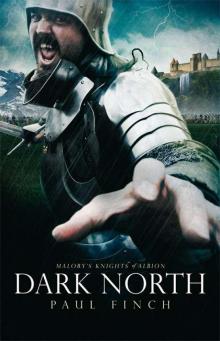 Dark North mkoa-3
Dark North mkoa-3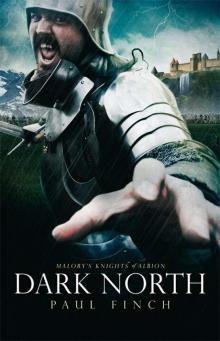 Dark North (Malory's Knights of Albion)
Dark North (Malory's Knights of Albion) a collection of horror short stories
a collection of horror short stories Sacrifice
Sacrifice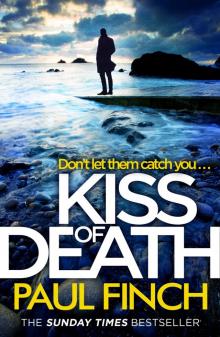 Kiss of Death
Kiss of Death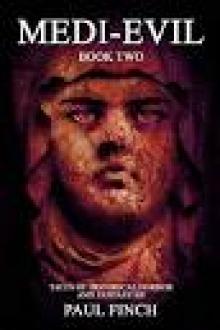 Medi-Evil 2
Medi-Evil 2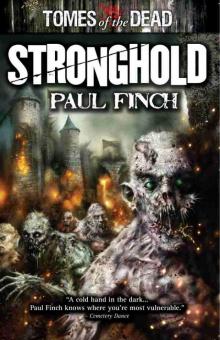 Stronghold
Stronghold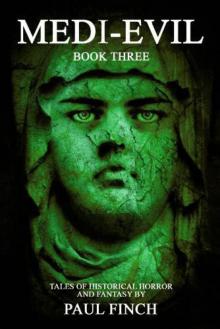 Medi-Evil 3
Medi-Evil 3 Dead Man Walking
Dead Man Walking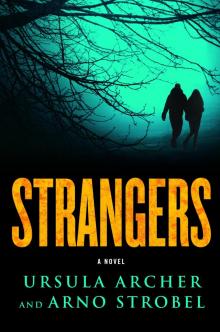 Strangers
Strangers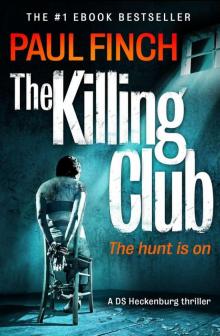 The Killing Club
The Killing Club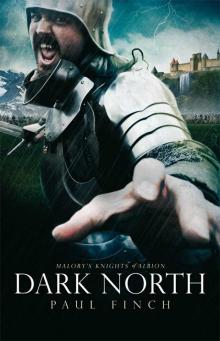 Dark North
Dark North A Wanted Man
A Wanted Man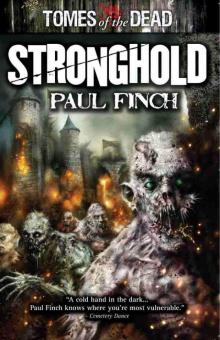 Stronghold (tomes of the dead)
Stronghold (tomes of the dead) Hunted
Hunted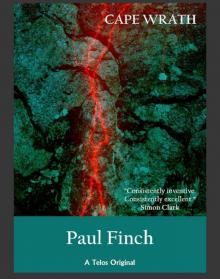 Cape Wrath
Cape Wrath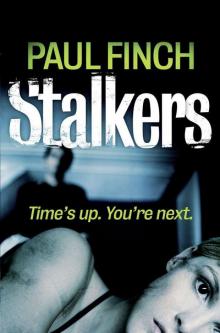 Stalkers
Stalkers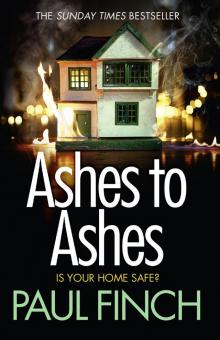 The Burning Man
The Burning Man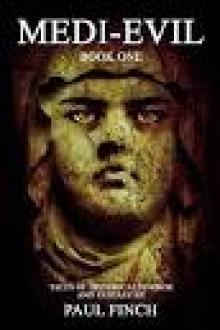 Medi-Evil 1
Medi-Evil 1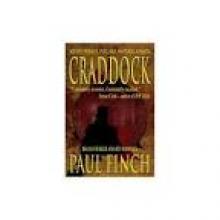 Craddock
Craddock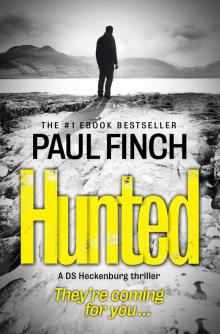 Hunted (Detective Mark Heckenburg Book 5)
Hunted (Detective Mark Heckenburg Book 5)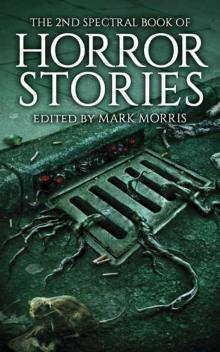 2nd Spectral Book of Horror Stories
2nd Spectral Book of Horror Stories The Chase
The Chase